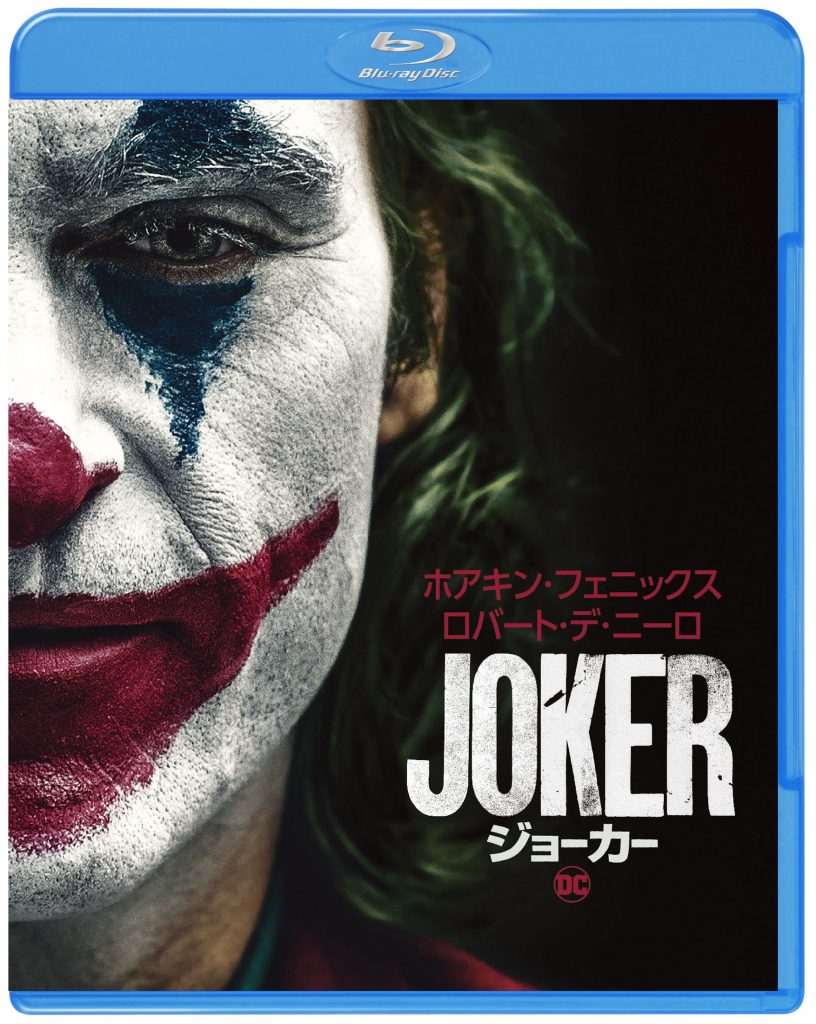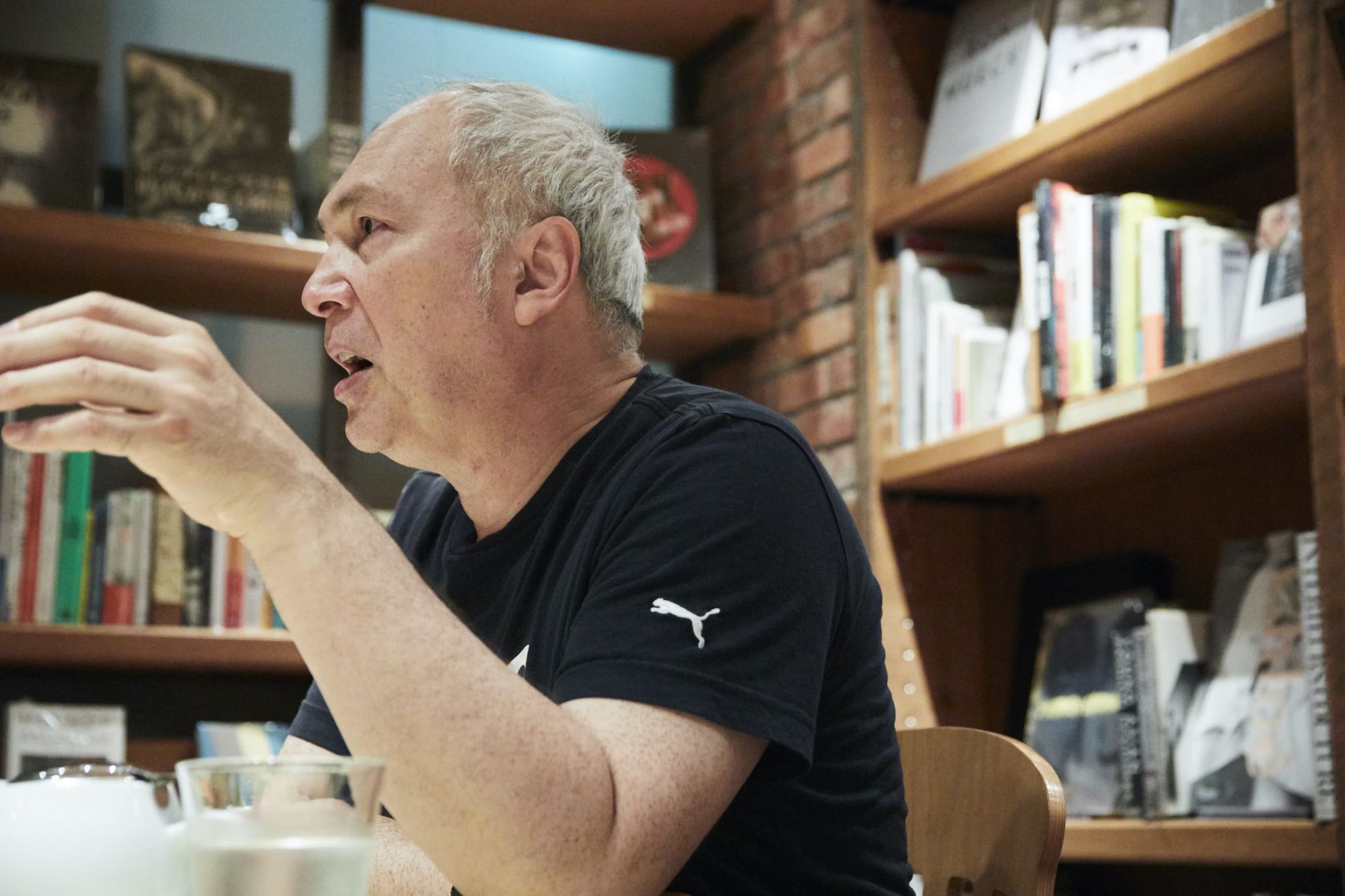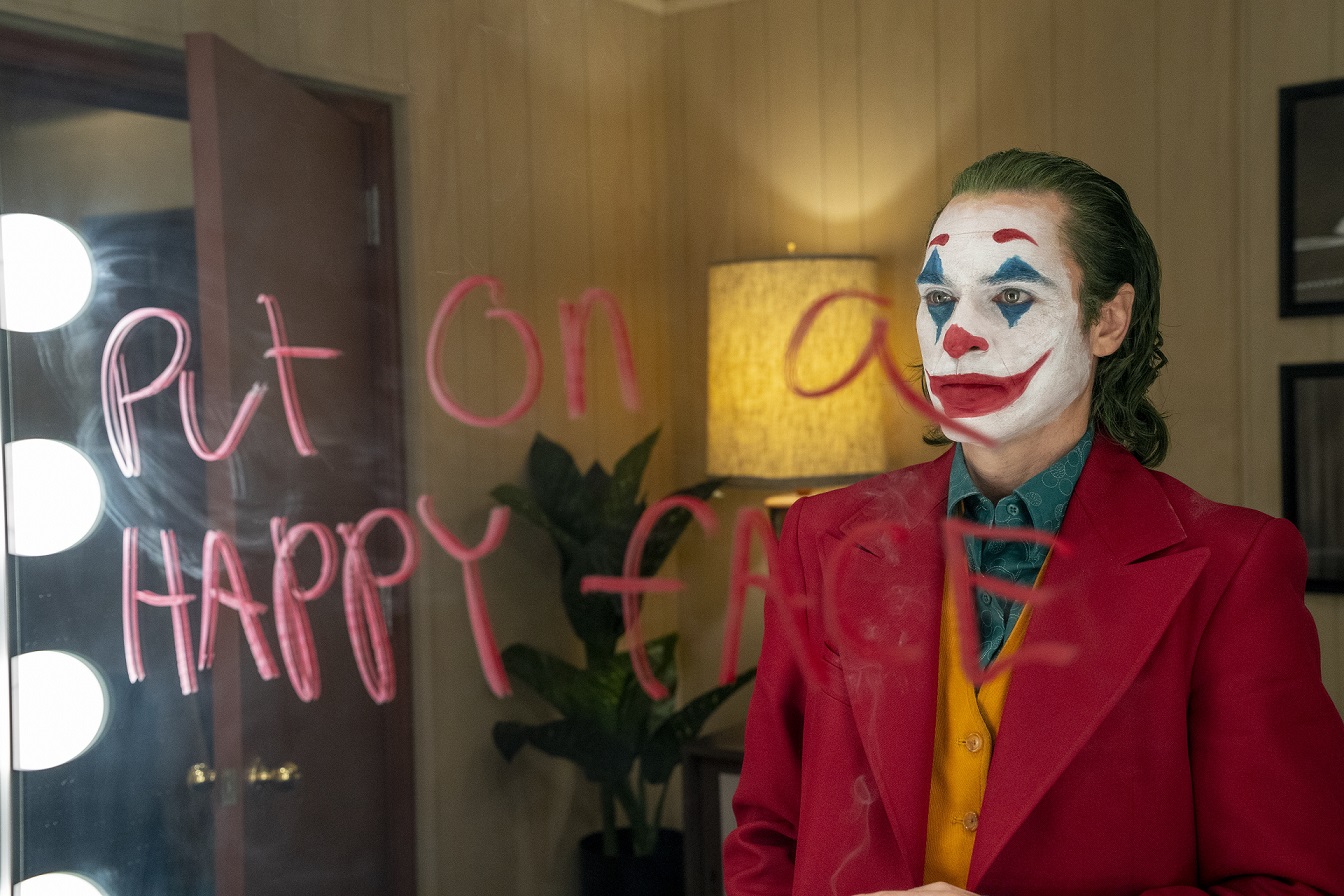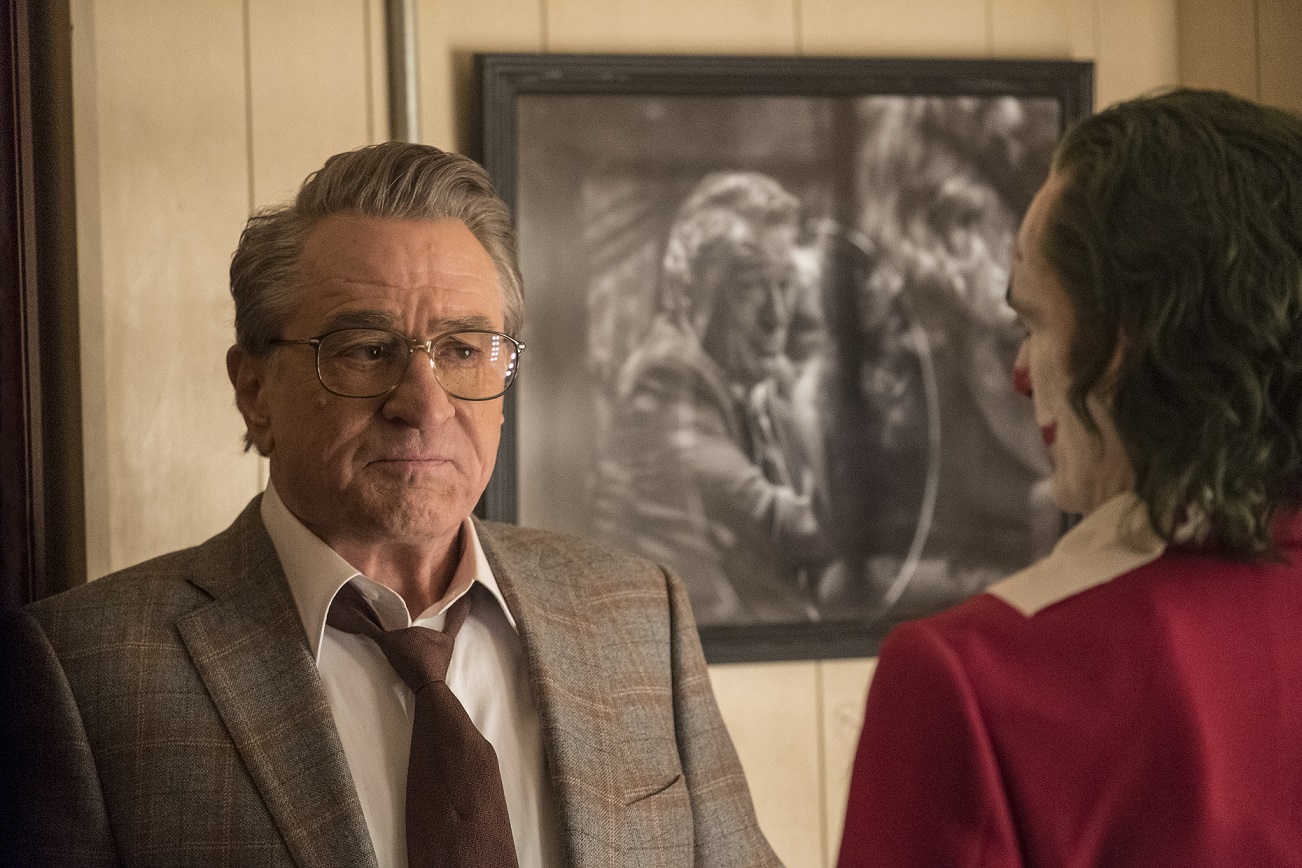With the spread of video streaming services, watching movies is no longer a special occasion, and it’s easy to share impressions and search for recommendations. However, this can make it feel like we’re mindlessly consuming film. In this series, influential figures with a love for film recommend movies that personally resonate with them.
This time, TV personality Morley Robertson makes his second appearance in TOKION. Working mainly in media, Robertson is a commentator, DJ, musician, and international journalist with a wide range of knowledge in fields ranging from politics/economics to subculture. In this column, he introduces films worth watching, particularly in the current coronavirus pandemic.
Imagining the great transformation of an era. Is it nearly here?
I feel that today, with the coronavirus outbreak changing our lives dramatically, this era is entering a grand cycle. An era based on the concept of astrology, if you will. A grand cycle, one that doesn’t need to be scientifically proven, is unfolding before our eyes.
This is a time where “lifestyle conservative”* ways of thinking are collapsing. In particular, the privileged class has gone from a cocky attitude of “Nothing needs to change!” to panicking as the rug is pulled out from underneath them. They’re forming vigilante groups that patrol the world, making the world a place where bad people who break the rules are thrown to the fire. You see that with Twitter fights and such. Although society is already collapsing, many people are unable to adapt to the present situation. I find myself imagining the following: Now that the system’s outdated values have reached their limit and become meaningless, in order to become happy, a tremendous power, one that can’t be found in government or lifestyle conservative manuals, must be released—like an active fault that has reached its breaking point. Thus, this dangerous but interesting era means a rejuvenation of the era is just around the corner.
*Lifestyle conservative= A direct translation of “seikatsu hoshushugi,” which refers to the attitude of satisfaction with consumerist society and not wanting social change.
Many have started to realize that worrying about what others think of them on social media won’t lead to happiness, nor will making clever comments earn them any brownie points. From there, they’ll also realize that there’s an opportunity for personal liberation and for the first time, a chance to break free from their shells. I think in the future, there’ll be more people who feel the thrill and savage joy of that state. When individuals break out of their shells, a great transformation of the era and culture will come. I think that in the near future, we’ll certainly be able to experience that on a grand scale. Three films perfectly fit my current imagined scenario: “The Joker,” “Mad Max: Fury Road,” and “The King’s Speech.” First, I’d like to talk about “The Joker.”

“Joker”
Blu-ray JPY2,619
Manufactured by Warner Bros. Entertainment Inc.,
Distributed by NBC Universal Entertainment
TM
© DC. Joker © 2019 Warner Bros. Entertainment Inc., Village Roadshow Films (BVI) Limited and BRON Creative USA, Corp. All rights reserved.
An opportunity to break out of your shell isn’t something you look for
There are many movies and TV series that depict the Joker. Jack Nicholson played a very cheerful Joker in the 1989 “Batman,” which I saw in theaters at the time. Since the movie was a live-action adaptation of a comic book, his portrayal was innocent like a comic. In comparison, Joaquin Phoenix’s Joker makes one appreciate the Netflix era. His multi-layered performance reveals truths about the times we live in, leaving an impression. I was overwhelmed by the Joker, who has a mental disorder that could be considered schizophrenia or insanity; it seems Joaquin himself studied this mental instability and improvised quite a bit. As I watched the Joker, who had been holed up inside until then, steadily exhibiting problematic behavior while getting ready to go out into the world, I couldn’t help but see an overlap with our current times. And no matter what the situation, for me, it was a movie where I kept my eyes on the Joker.
In every scene, there’s foreshadowing leading up to the explosion that is him committing murders; he’s ridiculed, beaten, sold a gun, and his mother continues to write letters to someone she believes is the Joker’s father. But the gun is just another tool, and he doesn’t know if the contents of the letter are true or not. Still, the reason he explodes is merely because he has been waiting for a motive. In the same way that the murderer in Albert Camus’ “The Stranger” testifies that he killed someone “because of the sun,” I strongly felt that what caused him to break out of his shell is irrelevant. Someone who is barely maintaining a delicate balance becomes unable to maintain that balance when confronted with a sound argument. Unable to allow change, that person screams, “I can’t forgive that sound argument!”. I believe this is the intolerance of Japan today. When I watch the Joker, I realize that we’re just waiting for something that has been unstable from the start to continue being unstable until it collapses. Even though the Joker knows he is a coward and is just barely holding on, in the end, he is overwhelmed with anxiety and loses his mind. Once he commits a murder, it triggers a domino effect. So in an attempt to forget his anxiety ever existed, he kills Murray Franklin, who is played by Robert De Niro. It’s crazy, but strangely, it somehow makes sense. After that, everything is a party, and an unthinking mob kills the police. This may be symbolic of killing authority, but it can also be interpreted as a scene representing the great transformation of the era, where everyone ultimately lets out their anxieties and thoughts. A real-life protest is much larger in scale than the mob scene, so if this were depicted poorly in the film, it could easily feel unrealistic or lacking in substance, but it works perfectly because it deliberately portrays the Joker as a god. For the mob, the Joker was the trigger, right? But it’s also interesting that no one knows what the new system will be. This is the same exact situation we’re in right now.
Robert De Niro’s presence brilliantly expresses the changing times
Robert De Niro’s presence can also be viewed in an interesting way. In “Taxi Driver,” he played a role that was like the embodiment of madness, right? In “The Joker,” he plays a veteran star of yesteryear, portrayed as a calm presence who skillfully manipulates the expendable performers. Although it may be a bit of a stretch, it was interesting in the sense that this allowed me to watch while overlaying the stories as I pleased: a man who was once the embodiment of madness becomes a lifestyle conservative in the present day, and is shot dead. It’s like it reveals that madness can exist within normalcy. I think it skillfully shows that when everyday normalcy and the conservative, middle-class happiness seen in catalogs becomes distorted, this is where they end up.
However, it seems that many people think that Robert De Niro appeared in “The Joker” as the embodiment of madness as well. Robert De Niro [Murray Franklin] has become a master thanks to his self-branding of sorts, and Joaquin [The Joker], a young man who admires him, comes along and shoots him dead. I’m starting to think that this is actually De Niro’s [Murray Franklin] true desire, which I can understand. It’s a bit like, “to die on the battlefield is beautiful,” and it could be interpreted as both living and dying with passion. In dying on the battlefield rather than at a hospital or nursing home, I can feel the discontent of our times.
In any case, the Joker does reckless things, but it didn’t make me feel despair. Rather, I interpreted it as a story of hope, and I even thought I’d like to be reckless like the Joker. (laughs) I’m really interested in what the world would be like after that.
Edit kei Watabe
Photography Teppei Hoshida
Translation Aya Apton





